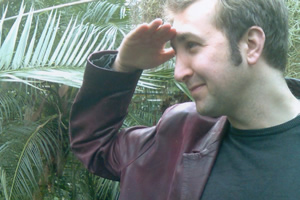Writers interview
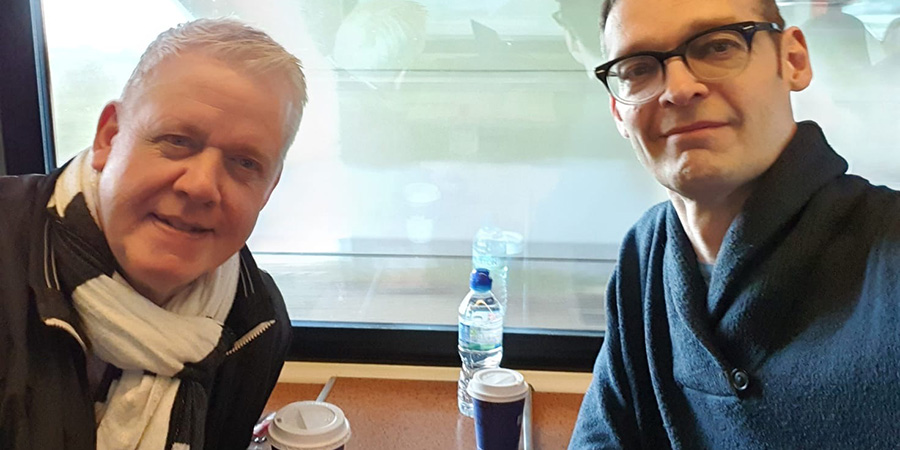
Road traffic police sitcom Bravo Two Charlies returns for its fourth series on BBC Radio Wales tonight. Starring Martin Trenaman, Rhys Ap Trefor, Rhian Green, Laura Dalgleish, Sion Pritchard, Simon Holland Roberts and Sarah Breese, the cult comedy is written by Trenaman and Matt Leys.
British Comedy Guide spoke to the pair about creating a world "slightly North-West of normal", time being up for toxic police officers, getting brought together as a writing duo by Lee Evans and why you will never, ever hear any sheep in the show.
This is now the fourth series of Bravo Two Charlies. Did you have any worries about complacency when writing it?
Trenaman: We're really proud of Series 1 to 3. We got the fourth and were delighted, very grateful to BBC Radio Wales. But Matt and I are constantly questioning whether it's as good as it can be. One of the benefits of writing four series is that we know those characters inside out. So you're not really scratching your head for every scene thinking "what's Dennis's take on this?" You kind of know. That's a huge advantage.
Leys: As we've gone on, it's become more about the core characters. The stories tend to come from them. When we started, we were coming up with funny scenarios and putting them in them. But now we know the characters so well, they're driving it. It's all about them.
Is it challenging combining the one-off storylines of a police procedural with the narrative arcs across episodes; the baby and the upcoming wedding for example?
Trenaman: Yes, it's a really nice thing to balance. When we started on the format, it came to us that it'd be fun to have a story for each of the three cars. And occasionally they meet up. They meet up slightly more in this series, which is great but quite difficult to write. That's 18 stories over six episodes. We shot ourselves in the foot somewhat. It works but it requires a bit of concentration.
Leys: It gets harder to come up with scenarios to put them into. But the characters' personal stories have sort of taken over and filled that.
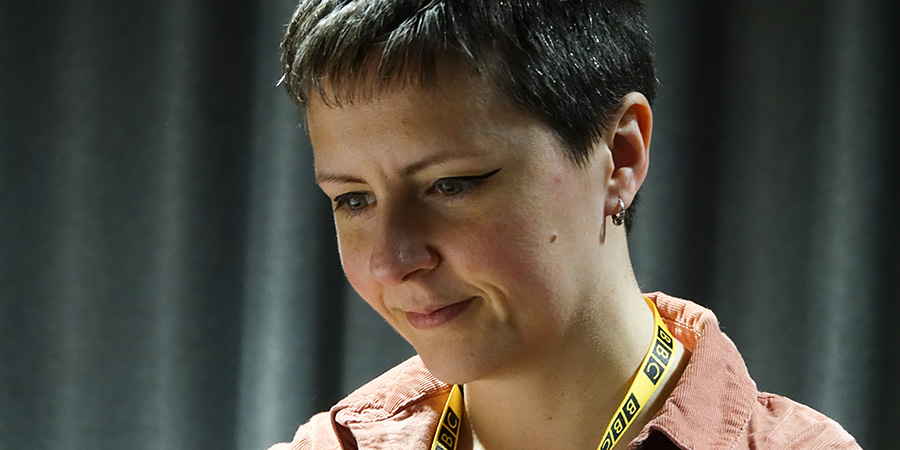
Did you have the idea of Sian and Gavin becoming parents in your mind from the start? Or of Grace and Wendy's partnership shifting?
Leys: Those evolved as we went along. We realised that what really mattered was the relationship in each car, it was driving everything. We realised that Dennis and Lee are like father and son. With Sergeant Price and Gavin, it's really all about power. Price is a classic bully, in that he's really a coward. Gavin seems to be the weaker, more timid one. But he's actually got more strength about him because he's in a rock-solid relationship with Sian. And Grace and Wendy were mates who became best friends, we just let that run.
Trenaman: Yes, we don't want to give any spoilers because we're fortunate to have proper fans. But we sort of stumbled on the arc of this series with the marriage of convenience...
Yes. It feels organic because you seeded that storyline previously.
Trenaman: Yes, in Series 3, the Fog episode where they're doing truth or dare? When it's suggested that there's a certain romantic link.
Leys: We were hoping then we could pay that off in the latest series, which is exactly what's happening.
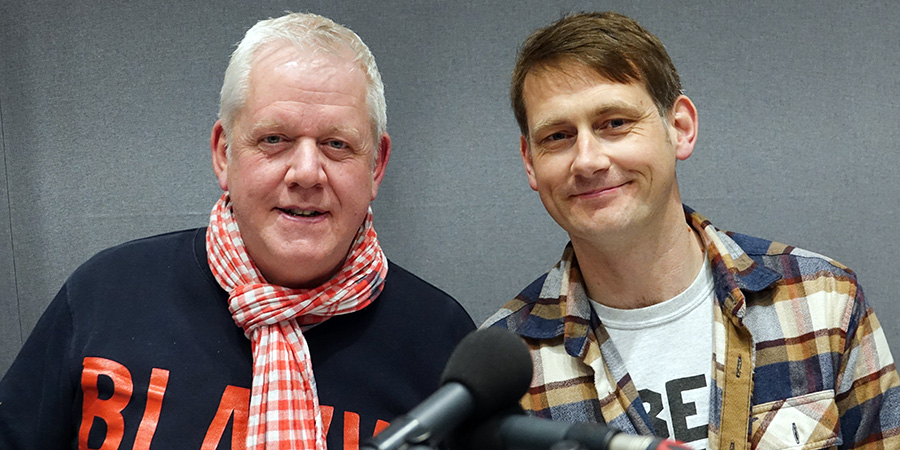
Dennis and Lee's relationship reminds me of Father Ted and Father Dougal, sort of Dumb And Dumber but Dennis thinks he's smarter.
Trenaman: It's a great dynamic to write and Rhys who plays Lee, he got it from the first script. Lee's not thick. I mean, he's not the brightest. But it's just that he's so unworldly. He's never done anything.
Leys: Dennis automatically assumes he's the paternal, wise figure. But he's not always necessarily wiser than Lee.
Trenaman: He's the author of his own downfall. He's the type of guy who says "well, how hard can it be?" Well, hard, as it turns out.
How do you come up with crime plotlines? Are you scouring local papers for bizarre stories? Matt, do you revisit and subvert plots that you used to write for The Bill and Casualty?
Leys: A little bit. Working on The Bill, I always gravitated towards the odd, quirky little stories. But far more often than not, you didn't get a chance to tell them. Bravo Two Charlies has given us a chance to create a world that we call "slightly North-West of normal", where strange quirks are the bread and butter, the daily environment. The stage hypnotist who's never done it before and actually runs a crab store, that kind of thing. Martin and I come up with a germ of a situation or a character and just run it backwards and forwards until something like that comes out and we're just laughing and laughing. That's when you know you've got something and the challenge is then to turn it into a story.
Trenaman: Sometimes we pre-empt real stories. There was a story in the press the other day about two coppers that had their squad car stolen. And we had that in Series 2 with Grace and Wendy. And there was one about police finding a stray penguin, which we also did. We're not that far from the truth.
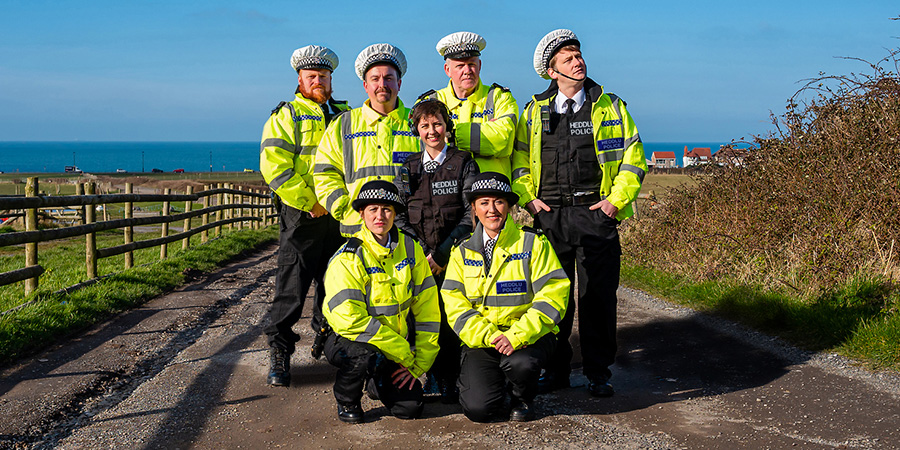
I hesitate to call Bravo Two Charlies "copaganda", but did you think twice about any storylines in the wake of the horrific, real-life abuses that have emerged from say, the Metropolitan Police recently? I'm thinking of Brooklyn Nine-Nine having to be drastically re-written after the George Floyd case and of at least one UK police sitcom that never made it to television in the aftermath of that.
Trenaman: Not really to be honest, because our characters are in such a world of their own. And they don't do an awful lot of policing. They might do even less in this series. There isn't much handcuffing. It's a bit more, "Blimey, where's the badger gone?!" So we weren't particularly fazed by that.
Leys: We have got Sergeant Price, who is a bad man who shouldn't be in uniform. And he is toxic, absolutely. In this series, we get deeper into that, we've given him nowhere to hide. Officers like him, their time is up. It's not a redeeming quality but the thing that makes him slightly different is that ultimately, he's just a complete bloody coward. If you put him in the Met, he wouldn't last five minutes. He needs the other characters to kick against. But they don't put up with it either, they're not really frightened of him and he knows that. We really put him through the mangle this time.
I wondered if he'd be redeemed after becoming Geraint's godfather?
Leys: No, he's a classic example of a man who tells you he's changed, then does something again. He's the worst of masculinity.
Trenaman: Also, there are still loads of fly-on-the-wall cop documentaries on television. There was even one about North Wales traffic police. I think people can separate comedy from real life.
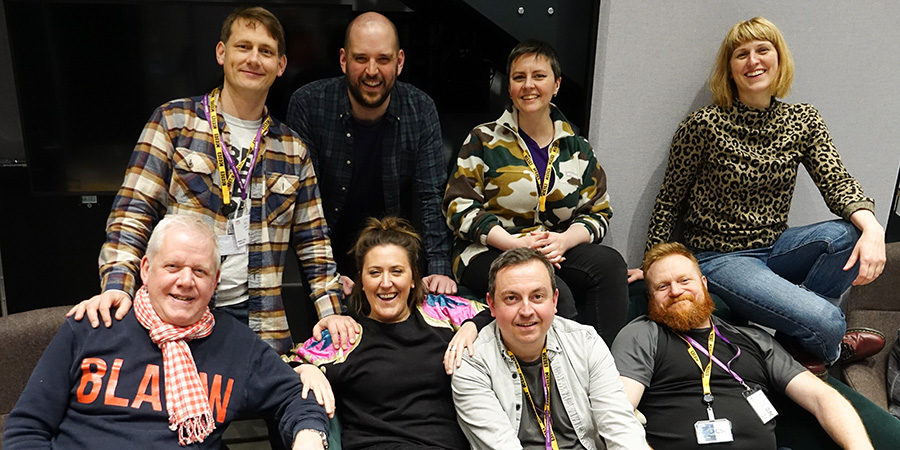
Have you had much response from the police? And listeners in North Wales?
Trenaman: Simon Holland Roberts, who plays Sergeant Price, he's got some friends in the force. And they text him that they love it, they don't take offence. Thank goodness. The response we get on Twitter from people in Wales is great too. It does very good business on BBC Sounds, it's their most successful BBC Radio Wales comedy outside of Wales.
Leys: We're proud that it represents North Wales because the vast majority of Welsh comedy skews to South Wales. There's quite a big difference, culturally, linguistically. A lot of the cast are from North Wales and it's about where it's from.
Trenaman: Simon said this is first acting job he's ever had where he's using his own accent.
Leys: He's from Colwyn Bay and doesn't have the stereotypical Welsh accent, it sounds more like the North-West of England. It's great to have that.
Representation is important for an audience to feel ownership of a series isn't it?
Leys: It's great that it gets a second audience on BBC Sounds but we make it for BBC Radio Wales, we haven't watered it down or filtered it all for a more general audience. It's got an authentic identity and voice. And there are no sheep in it. That was rule one, no sheep ever mentioned.
That's an actual rule you abide by?
Leys: Absolutely, that was the main rule. No sheep involved, we have to find a different way.
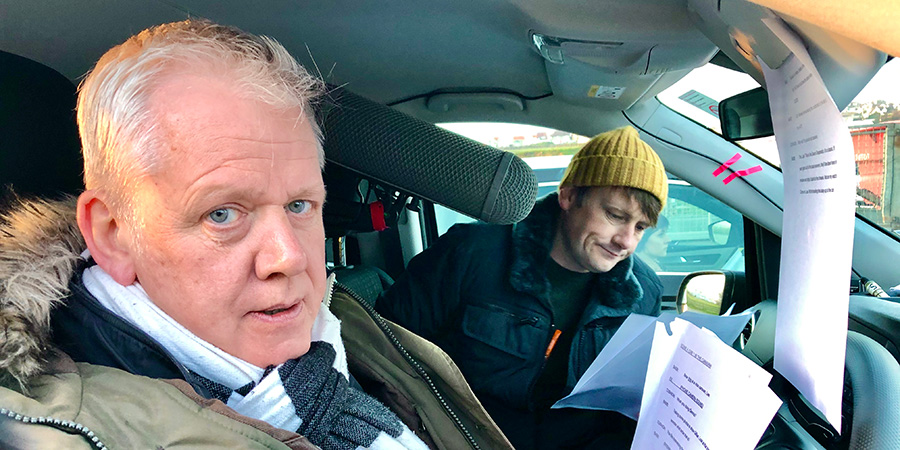
So llamas and alpacas then but no sheep. What you were saying about the show becoming less about the police procedural and more about the characters' relationships, do you think that's a natural process for a sitcom like this moving beyond its first few series?
Leys: Yeah, I really think so. Whenever we're stuck on a scene, we always try to bring it back to the truth of the character, what would they do in that situation? That always leads you.
But is it fair to say the show is getting slightly madder and the characters more eccentric with each series?
Leys: We love that it's got the flexibility to embrace that eccentricity. Our producer Steve Doherty, who's kind of the third wheel in Bravo really, he loves it and encourages it. Only very occasionally does he tell us that it's gone a little bit too far. Like when we had an electric car that had run out of battery being towed by two horses, like a sleigh. That got too loopy. He thought we might revisit it. And he's invariably right.
Without spoilers, what can you tell me about this fourth series? I understand Ryan Reynolds is involved.
Trenaman: Well, it just revolves around Wrexham AFC's Racecourse Ground. We did sort of half-heartedly try to contact him. He would know who my team is, Southend United, because we've played them home and away this season. And we're both actors, so come on...
Leys: We've got Sergeant Price meeting his nemesis again. And Lee goes on his first holiday and goes swimming for the first time. He comes back with something to deliver to someone, probably not the wisest thing to have done, which actually leads into the Wrexham story. And Sergeant Price goes ... quite far over the line.
Trenaman: He's encouraged by a member of the aristocracy to...
Leys: ... do something very, very bad.
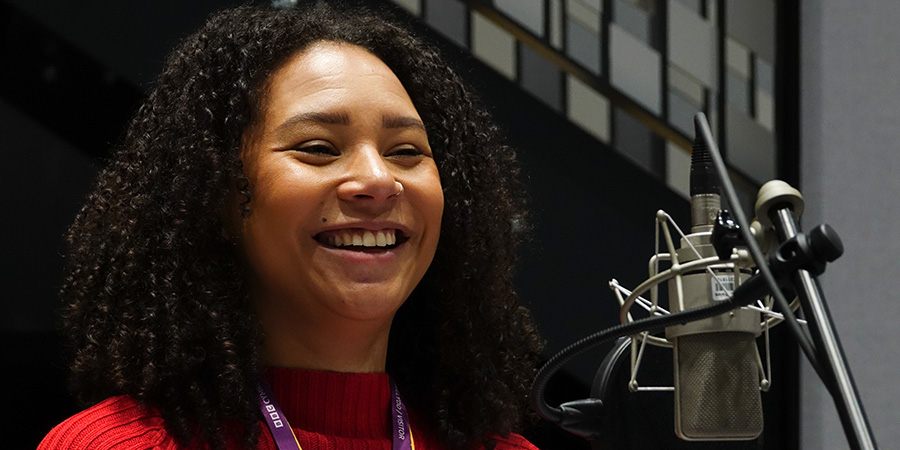
Trenaman: We should mention our guests actually. Colin Hoult is in it and he's absolutely brilliant. Mark Henry-Davies is returning.
Leys: Mali Ann Rees, who's quite a well-known performer in Wales, really, really good. Being based there, Steve is very across the Welsh comedy scene and he's able to draw on this really amazing pool of talent. Sarah Breese and Sion Pritchard are stalwarts of that scene and great to work with, real pros. We're really lucky that we got this fantastic cast together for series one and they've stuck with us all the way through.
Martin, you've previously suggested that you re-write right up until recording. How true is that?
Trenaman: That is pretty true. To be honest, we were up against it on this one. Steve told us that our deadline was a Thursday at two o'clock and we delivered with 15 minutes to spare. But then we go over it again. And we even change bits on the day.
Leys: One of the nice things about the cast is they're free to offer suggestions, little changes and bits of language that the audience will get.
Trenaman: Sion was in PhoneShop with me. I did three series of that with [writer-creator] Phil Bowker and you'd have to learn the lines of some complicated phone package, the Double Eagle, 24 Hour something or whatever, and he'd be in floods of tears of laughter. Then right before yelling action, he'd go "call it the Pigeon instead". And you'd be like "argggh, I haven't learned it yet!" So I'm used to that and we knew Sion could handle it too. And of course, it's radio, so you've got the script in front of you...
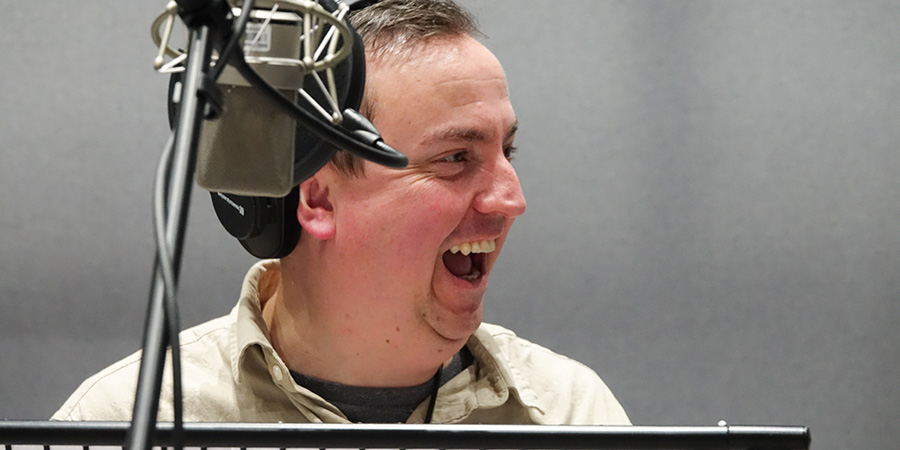
You became a writing team after Lee Evans introduced you. Why did he think you'd hit it off?
Trenaman: I was accidentally working with Lee. Just before I started doing stand-up, I co-ran a comedy club in Southend. I knew Lee from there, he used to compere every couple of weeks. And he went for a meeting with Matt and the director Jim Doyle and I just sort of tagged along.
Leys: I was working at Granada in Andy Harries's comedy department. He said that he wanted to sign Lee to do a pilot, which became The World Of Lee Evans. Lee came up from Southend every day to write on it with us and one day he said "can I bring my friend?" That was when I met Martin. We met again in Edinburgh when he was [winning] So You Think You're Funny [in 1994] and it snowballed from there.
Trenaman: I owe a lot to Lee because he took a punt on me. I wasn't writing, I was just doing stand-up. But he saw me do my show in Edinburgh[/f], waited backstage and asked if I wanted to work with him. So we wrote some sketches for his live show. Then he asked me to be in them. So my first proper acting job was a 10-week run in the West End of London. I was only in it for about four minutes but it was my first break and I'm forever grateful to him.
You piloted a television version of Bravo Two Charlies for BBC One Wales in 2021. Can you tell me if anything's happening with that?
Trenaman: That's still in discussion, back and forth. It's up in the air.
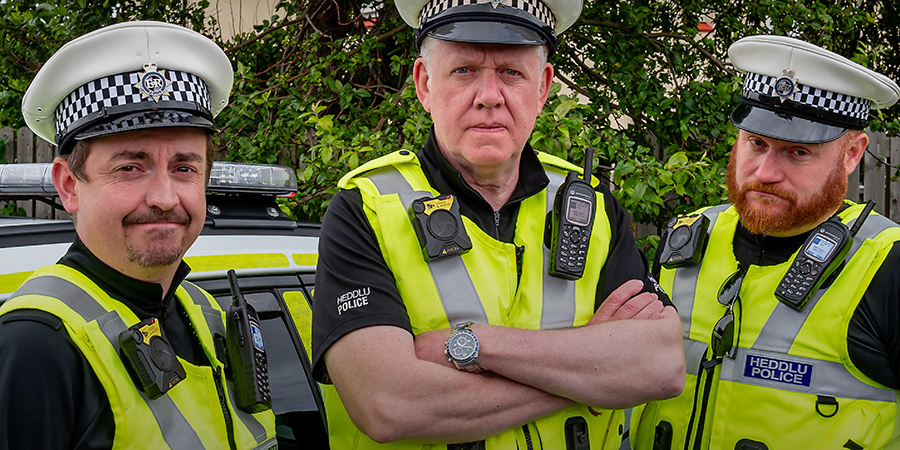
Leys: Television's a much slower process. We're just sitting here, getting on with everything else, hoping one day to hear the town crier announce it with a massive bell. We made it for a very, very small pot of money. But as we do with the radio show, we tried to squeeze as many jokes in as we could, make every second really count.
Do you have ideas for more Bravo Two Charlies radio series?
Trenaman: I think there are stories for a Series 5 if we're lucky enough to get it. We'd bite their hands off again. We love writing these characters.
Leys: It's a joy to write, so we'd hate to say goodbye to them.
Trenaman: We're also working on something for Radio 4 and we've always got telly ideas knocking around. We've got a meeting with Leopard Pictures who made the TV pilot. Fingers in many pies.
Leys: Where does that expression come from? Why are people putting fingers in pies?
Help us publish more great content by becoming a BCG Supporter. You'll be backing our mission to champion, celebrate and promote British comedy in all its forms: past, present and future.
We understand times are tough, but if you believe in the power of laughter we'd be honoured to have you join us. Advertising doesn't cover our costs, so every single donation matters and is put to good use. Thank you.
Love comedy? Find out more

